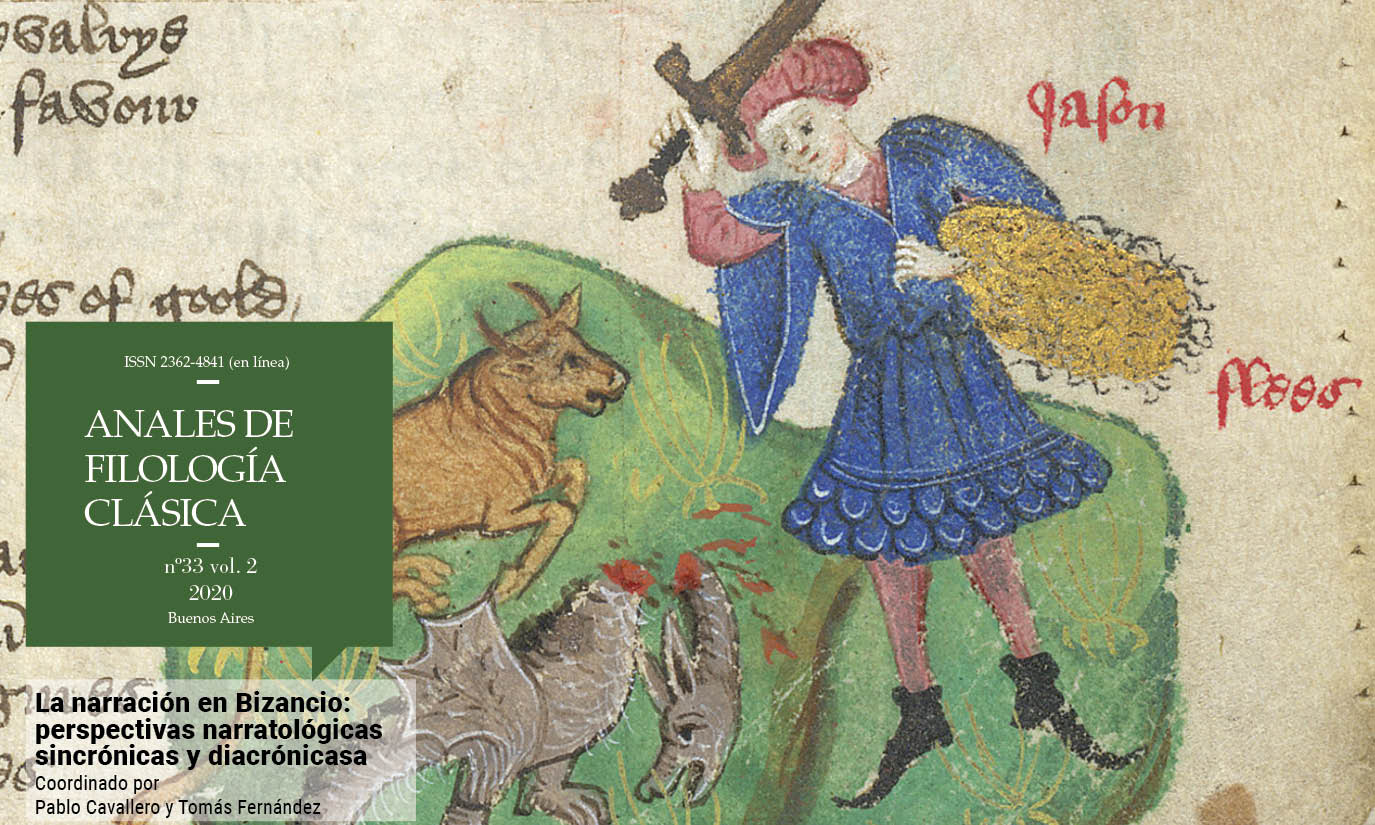The Christian Emperor and the Pagan City: Constantine I’s Legendary Relationship with Byzantion
Keywords:
Constantine I, Byzantion, Constantinople, Paganism, Christianity
Abstract
Byzantine legendary traditions regarding Constantine’s foundation of Constantinople never fail to allude to the fact that the Christian capital was founded on the site of the pagan city of Byzantion. However, these traditions are not always in agreement when it comes to defining the relationship between the Christian emperor and the pagan city, or the way in which the legendary memory of Byzantion influenced the history of Constantinople. This paper discusses the existing evidence and provides a tentative interpretation of the role that different traditions played in shaping the symbolic dimension of Constantine and Constantinople.Downloads
Download data is not yet available.
Published
2020-11-30
How to Cite
Casamiquela Gerhold, V. (2020). The Christian Emperor and the Pagan City: Constantine I’s Legendary Relationship with Byzantion. Anales De Filología Clásica, 2(33), 7-30. https://doi.org/10.34096/afc.i33.10012
Issue
Section
Artículos
Los autores/as que publiquen en esta revista aceptan las siguientes condiciones:
- Los autores/as conservan los derechos de autor y ceden a la revista el derecho de la primera publicación, con el trabajo registrado con la licencia de Atribución-CompartirIgual 4.0 Internacional (CC-BY-SA 4.0) de Creative Commons, que permite el uso comercial de la obra y de las posibles obras derivadas, la distribución de las cuales se debe hacer con una licencia igual a la que regula la obra original.
- Los autores/as pueden realizar otros acuerdos contractuales independientes y adicionales para la distribución no exclusiva de la versión del artículo publicado en esta revista (p. ej., incluirlo en un repositorio institucional o publicarlo en un libro) siempre que indiquen claramente que el trabajo se publicó por primera vez en esta revista.
- Se permite y recomienda a los autores/as a publicar su trabajo en Internet (por ejemplo en páginas institucionales o personales) antes y durante el proceso de revisión y publicación, ya que puede conducir a intercambios productivos y a una mayor y más rápida difusión del trabajo publicado (vea The Effect of Open Access).
En ningún momento se cobrará monto alguno al autor por la publicación en esta revista.







